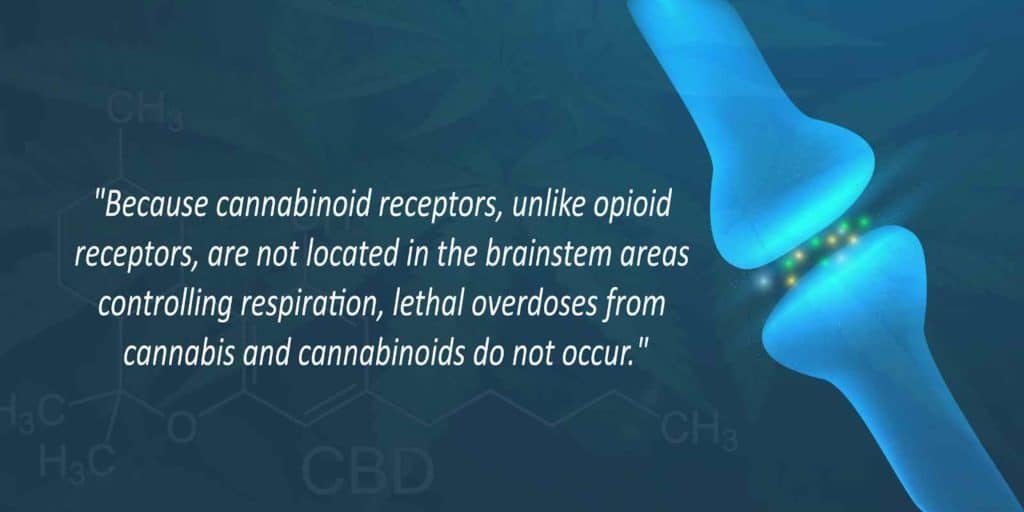Fast + Free Shipping on all orders over $29
Fast + Free Shipping on all orders over $29
Your body and all mammals have an endocannabinoid system. Also known as the ECS, it’s a complex cell-signaling system that helps maintain balance throughout all the body’s primary functions. The ECS was confirmed in 1992 by the same researchers that identified CBD and THC’s chemical structure, Dr. Raphael Mechoulam.
Research indicates the ECS plays a significant role in various body functions, such as appetite, immunity, mood, and pain.
The endocannabinoid system consists of endogenous cannabinoids (internal), cannabinoid receptors, and enzymes. There are two primary cannabinoid receptors, cannabinoid receptor type 1 (CB1) and cannabinoid receptor type 2 (CB2). These are found throughout the body with different concentrations in various systems.
CB1s concentrate in the brain and central nervous system region and CB2s are located primarily in the peripheral nervous system, with higher amounts in the immune cells. One spot you won’t find the receptors is in the brainstem. Neither phytocannabinoids nor endocannabinoids can cause a lethal overdose. The National Cancer Institute explains it best,

The internal cannabinoids produced by the body send signals to the CB1 or CB2 to make changes in various systems. For example, suppose a person is experiencing soreness from a friendly game of football. In that case, the endogenous cannabinoid might activate the CB1 to reduce the discomfort. After it sends the signal, the enzymes break down the spent internal cannabinoids.
External cannabinoids are the only known compounds to have a key to the endocannabinoid system. Hemp compounds, such as CBD can interact with the ECS in the same way as endogenous ones. Specifically, CBD has the potential to activate the CB1 when a person’s experiencing discomfort. CBD has the unique ability to interact with both CB1 and CB2 receptors. This response may explain the wide range of CBD benefits.
It’s vital to understand everyone has an endocannabinoid system, whether or not they use hemp and cannabis products. Studies suggest that when the body’s balance of internal cannabinoids is off, so is your wellness. Some scientists believe people with certain conditions are experiencing cannabinoid deficiency syndrome. The compelling theory may explain certain medical conditions resistant to most treatments, such as fibromyalgia, migraines, and irritable bowel syndrome. This research is still in its infancy, but the potential exists for positive results in the future.
Some brands offer a CBD isolate that’s 99.5% to 99.9% pure. It contains none of the other 544 known compounds found in a full-spectrum formula. While each phytocannabinoid and terpene offer various advantages, research suggests they provide a better benefit together.
The technical name for the body’s enhanced response to a whole-plant blend is the entourage effect. Dr. Ethan Russo, the scientist behind the theory, believes that in the end, “The plant does it better.”
Despite the research, Russo’s studies haven’t convinced all cannabinoid experts on the entourage effect’s existence. More information is necessary to either prove or disprove the scientific hypothesis.
However, Russo concludes the potential benefit of such a theory is enormous for consumers.
You must be 18 years of age to purchase certain products from this website. Some Rado Life products contain 0-0.3% THC. Each batch is 3rd party tested for peace of mind.
**The statements made regarding these products have not been evaluated by the Food and Drug Administration. The efficacy of these products has not been confirmed by FDA-approved research. These products are not intended to diagnose, treat, cure or prevent any disease. All information presented here is not meant as a substitute for or alternative to information from health care practitioners. Please consult your health care professional about potential interactions or other possible complications before using any product. The Federal Food, Drug, and Cosmetic Act require this notice.